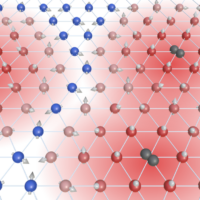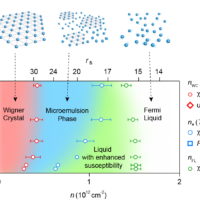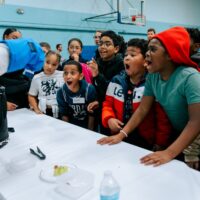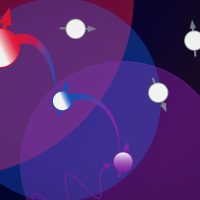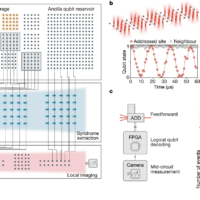News
Mon November 18, 2024
Emergent ferromagnetic states revealed in a geometrically frustrated triangular lattice
News type:
Mon November 18, 2024
CUA scientists observe microemulsion phases in the quantum melting of an electron Wigner crystal
News type:
Thu November 14, 2024
Cavity-enabled real-time observation of individual atomic collisions
News type:
Wed October 16, 2024
Vladan Vuletic wins the 2025 Arthur L. Schawlow Prize in Laser Science
News type:
